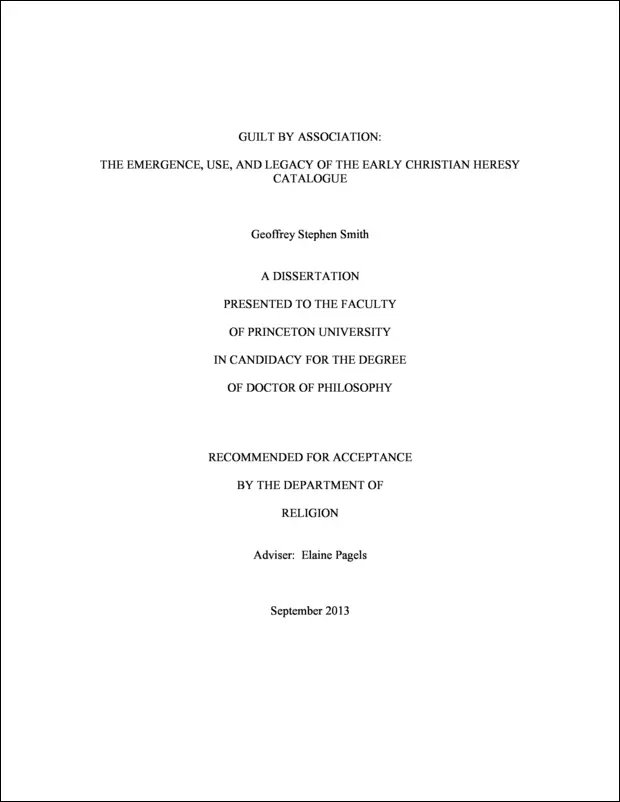
Guilt by Association.
The Emergence, Use, and Legacy of the Early Christian Heresy Catalogue
Smith G.S.
Год :2013 Количество страниц :233 [241] Язык :Английский Категория :+ Не только о гнозисе Скачать : PdfПоддержать :
Abstract
In this dissertation I explore the creation, publication, and circulation of heresy catalogues by second- and early third-century Christians. Polemicists made use of these religious blacklists, which include the names of heretical teachers along with summaries of their unsavory doctrines and nefarious misdeeds, in order to discredit certain opponents and advocate their expulsion from the “authentic” Christianity community. Heresy catalogues proved to be an especially effective technology in struggles for religious authority and legitimacy because they not only recast rival teachers as menacing adversaries, but also reinforced such characterizations by organizing otherwise unaffiliated teachers into coherent intellectual, social, and scholastic communities established and sustained by demonic powers.
Within this broader cataloguing tradition, I focus especially on the legacy of one specific list, the Syntagma against All the Heresies, and argue that later “orthodox” heresiologists such as Irenaeus, Hegesippus, Hippolytus, Epiphanius, and Pseudo-Tertullian, came to conceive of their opponents with striking similarity largely on account of the promotion of this early catalogue by an influential Christian teacher named Justin Martyr. The Syntagma supplied later polemicists with an inherited tradition that they could rework and modify for their own purposes, but could not ignore. By attributing the emergence of a relatively stable and unified approach to heresy to this successful advertising campaign, I am advocating a shift in our understanding of the development of orthodoxy and heresy away from models that emphasize the inevitable triumph of truth over error, to one that regards “orthodoxy” not as a thing possessed but a prize to be won through the popularization of one form of Christianity over others.





